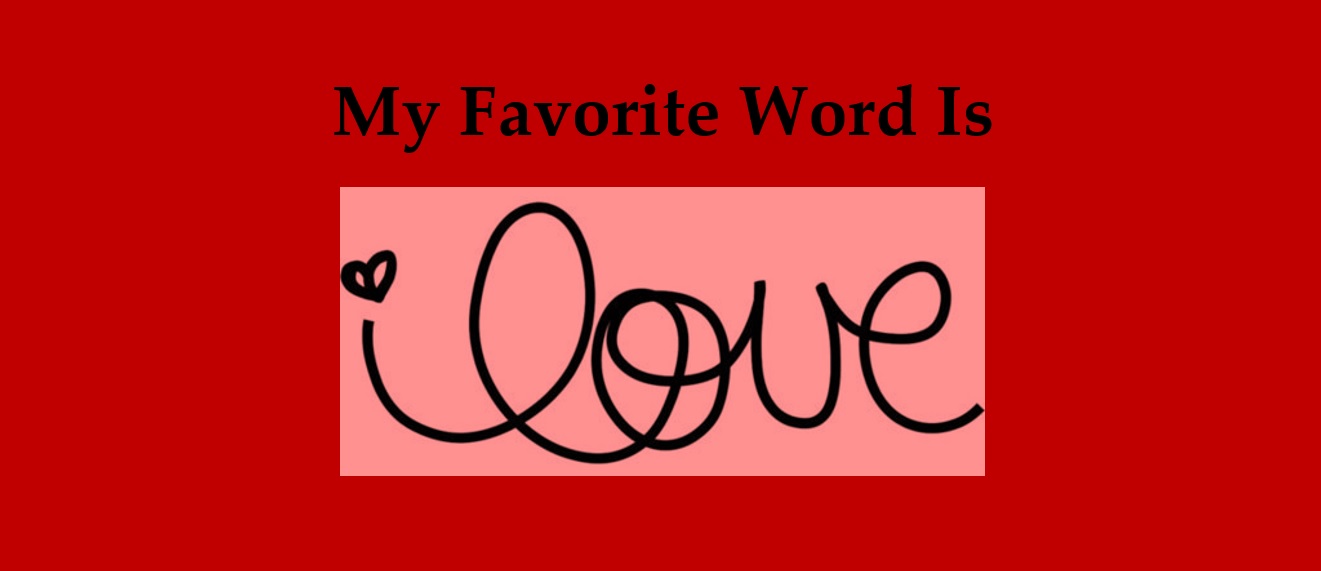I first discovered Aracelis Girmay’s poem “You Are Who I Love” while teaching an online graduate course at Brooklyn College. We were one year into the pandemic and the need to create community within the “Zoom room” felt more urgent than ever. Though it wasn’t a poetry class, I opened many of our class meetings with creative free-writes, and I began experimenting with voluntary, low-stakes collaborative poems in the chat. I generally invite students to select a line or phrase from their free-writes, and then, after typing a provisional title into the chat, allow chance to work its magic as the fragments tumble forth. The resulting pieces were often amusing, but the beauty of what emerged on this particular day surprised all of us.
What makes certain poems such excellent mentor texts? I think one quality is that the poem makes us feel something. Poems that are “moving” can move readers to respond. This is a kind of alchemical magic—these words, in this order, arranged on the page or screen, stir us out of our inertia, resistance, or fear, and suddenly we feel more inclined to write. The poem transmits a “charge” that nudges us into response.
What makes certain poems such excellent mentor texts? I think one quality is that the poem makes us feel something.
Another quality we often look for is a repeatable phrase, form, or device. We read an acrostic and we write acrostics in response. We share an ode (twice), identify some beautifully deployed device, and then each choose a subject and write our own. We internalize the anaphora in Joe Brainard’s I Remember, and by repeating these two words over and over, we begin to activate and capture our own memories.
Girmay’s “You Are Who I Love” possesses both qualities. It awakens our hearts while simultaneously inviting us to join in this unfurling litany. Pulled into the trace of the poem, we feel compelled to follow the poem’s example by contributing our own particularized loves. I’ve repeated this lesson in various contexts since—with undergraduate poetry students, with teachers in a summer writing workshop, and with over one hundred folks in an online event to celebrate the artist Corita Kent. Each time it has worked wonders.
“You Are Who I Love” is longer than many mentor texts. The length allows for multiple readers—more voices in the room. When teaching online, I recommend creating a Google Doc with a link that you can share in the chat. In the interest of maintaining a flow, you can divide the poem into sections using asterisks and asked for volunteers in advance. If the reading order is clear, students can “pass the baton” with very little interruption between readers.
A caveat: the version of this poem that appears on Poets.org contains one single f-word (used to powerful effect) toward the end of the poem. Depending on the age of your students and the context of your classroom, this could pose an issue. However, you can find a beautiful reading of this poem online that has a slightly revised (more child-friendly) reading, and this could be shared as an alternative.
Lesson Plan
1. Read the poem aloud as a class. (If the class is online, share as a Google Doc with clear indications for the alternating readers.)
2. Once the final reader completes the final line, pause for a moment before inviting some brief observations. The point is not to analyze the poem at this stage, but to allow for a brief check-in: What did you feel as you listened to the poem? How might you describe the emotional state of the poem’s speaker?
What I want students to notice (and emulate in their own writing) is the poem’s specificity and variety. If your students have learned the following devices already, you may highlight Girmay’s use of “anaphora” and “apostrophe.” But these devices can be identified and reviewed after the free-write as well, especially if you sense that unfamiliar literary terms might diminish the energy of the moment.
3. After a short period of discussion, give some version of the following prompt: We are going to free-write in response to this poem for 5 minutes. Repeat any of the following phrases—”You are who I love . . .” or You, who . . .”—and see what comes up. You can think of it as a rolling list. When possible, try to use vivid, specific details.
4. Write along with your students, and when the free-write is over, invite your students to take another minute to silently read through what they wrote. (Note: if, at the five-minute mark, most students are still deeply absorbed, extend the time for a bit longer.)
5. At this point, ask your students to find one line from their list that calls out to them in some way. One line that strikes you and that you are willing to share with your classmates. (I always allow students to pass, if they wish, though they rarely do.)
6. At this point, I type into the chat—“You Are Who We Love”— and ask everyone to type in the line of their choice into the chat. Allow this to happen spontaneously and without trying to control the order in any way. If you are sharing this with students in a classroom, you might ask each student to write their line on an index card or slip of paper; you can collect these and shuffle them into a stack.
7. Once everyone has typed or submitted a line, read this spontaneous collaborative poem aloud, beginning with the title. Don’t worry about any jagged edges or gaps; as in the example below, these often create surprising and beautiful effects.
If you have time, you can invite volunteers to read their individual free-writes aloud. Another variation is to follow the free-write with the invitation to read aloud and then pivot to the collaborative poem exercise.
If you are teaching a creative writing workshop, you can ask students to continue working on this free-write for homework, revising and shaping it into a poem of their own. If teaching virtually, be sure to save the chat before concluding the meeting! Open it later, copy and paste the collaborative poem, and then shape it into a new document. I’m careful not to alter students’ words but I do shape line and stanza breaks to accentuate the flow. Then you can send it to your students and/or post it with your class materials.
This collaborative poem was written in a six-session summer workshop with teachers.
YOU ARE WHO WE LOVE
You teachers who had to learn to reach out in just two dimensions,
and spend your summer thinking and learning
how to be a better teacher in the fall.
You are a gray sky promising rain for miles,
the people I work with everyday whose names I am unsure of.
You, coming home from fly-fishing, with a string of bird stories for me.
You are who I love, whom the dog goes to when she needs to be walked or fed.
You are who I love, you who are gone but not really,
not here but not not-here,
the mother who loved me and let me go a thousand times.
You, confessing,
You are who we love as the guardian in life and on the court.
You are who I love whose timing is always off, whose questions are always invasive,
who can’t mind her own business, who drives me crazy, sometimes by the minute,
I pray you will be doing that for a long, long time, you are who I love…Mom.
You are who I love, chunky haunches and white whiskers
doin’ a Chubby Checker on the cool cement.
You are who I love, propagating plants wherever you come across them,
just like you did when you escaped Viet Nam young and alone,
growing new roots into the American soil.
You are who I love, the one who holds me when tears aren’t enough,
when they don’t wash away the guilt of not loving back.
––Students from “The Soul of Summer” workshop in July 2021
The following collaborative poem was written in the Zoom chat with my students at Brooklyn College. It was a graduate course titled “Literature for Children and Adolescents.” YOU ARE WHO WE LOVE You who purrs You who forgets conversations You who yells, but doesn't hit You who calls your son the pain of limitless compassion You who names him party of one You the bird You the mourning dove I love the astronomer pointing at stars we will never reach, and the birdwatcher who knows the call of each species You are who I love, trying to be the bigger person by walking from a situation when really what you wanna say “Fuck you” You are who I love the one who gives me something to look forward to when the teaching gets tough where I would prefer your company instead of my planned solitude the private check ins and where it’s okay to check out You who shows me affection when no one else will You are who I love you, whose fingers smell of bleach and Blue Parliament Cigarettes you, whose laugh turns into a snort of a schoolgirl, who hides behind the palm of your hand whenever you find something you said especially funny you, who braids my wet hair, no matter how tired and heavy your eyes become You are who I love, "I need your help, when are your office hours?" You are who I love, “I got into college and wanted to let you know first!" I love your 11 names yet 1 constant lovable personality And sometimes, I catch him staring out the window as if lost in a trance, and I think how wonderful that he can just be and here I am being with him how I’d like to dig through his thoughts hold them like tiny red seashells that once held hermit crabs until they scuttled off You are who I love, the sister doubled over in grief, the sister who carried mom’s laundry home to be washed, and folded, and brought back again with a smile and a kind word for the woman who birthed you and who still remembers your name, though she doesn’t remember many You who always wrote back, again, and again, and again; thank you for loving him, loving then, loving still. You are who I love, waking up early, brewing coffee, sweeping the floor to the sound of the radio You are who I love, talking to your friends about their problems, phone in one hand crying child in the other You are who I love, dropping the dollar in the sleeping man’s paper cup in the subway You are who I love, writing songs and stories in your hotel room, wondering if they’ll ever be heard You are who I love, responding to people with kindness even though your eyes say they’ve hurt you If they only knew what it was like to never say I love you Only over your friend’s dead body, praying so hard with your hands on his face wishing that somehow you held a magic in your fingertips that could bring someone back to life You think “Where is god when you need him?” Wispy-thick black hair spreads a whorl from your head-back and stretches, two inches a strand across all your one-monthly head, stretches soft over your touch soft forehead, the head that turns red when you’re hungry, when you’re tired, when you’re pooping You who I loved like the morning when I was sickened by myself — sickened from abuse. You who nursed me back to healthy who gave me chances to fail over and over, watched me die, suffered while I mocked your goodness — Mother / Girlfriend You are who I love, teaching me how to love and empowering me to be kind, patient, forgiving, welcoming, tolerant, graceful, giving, and diligent Because of you, I am who I am today I love her quiet successes and I love her loud failures You who found a way to love yourself honestly, consistently, unconditionally in and out of turmoil You are who I love with the Claddagh ring on your thumb which you spin and spin and spin I love her mind She's so strong She gathers and has brought strength for her and for me the man who is my twin without a doubt the man who was once becoming my best friend the man who I lost a connection with but always think about the man who always said, I'll be his little princess the man who I know is a good person. the man who will forever be my dad You are the one that I love your chocolate brown skin you are who I love your big brown Bambi eyes your eyelash curls and dainty fingernails you are my strength my heart my little girl my everything You are the one I love helping those who cannot help themselves. ––Students of English 7010X, Spring 2021
For more on Aracelis Girmay, read Matthew Burgess’ interview, “The Beauty of the Snail and the Blinking Rain: A Conversation with Aracelis Girmay About Poetry, Teaching, and Picture Books.”
Matthew Burgess is an Associate Professor at Brooklyn College. He is the author of eight children's books, most recently The Red Tin Box (Chronicle) and Sylvester’s Letter (ELB). Matthew has edited an anthology of visual art and writing titled Dream Closet: Meditations on Childhood Space (Secretary Press), as well as a collection of essays titled Spellbound: The Art of Teaching Poetry (T&W). More books are forthcoming, including: As Edward Imagined: A Story of Edward Gorey (Knopf, 2024), Words With Wings & Magic Things (Tundra, 2025), and Fireworks (Harper Collins, 2024). A poet-in-residence in New York City public schools since 2001, Matthew serves as a contributing editor of Teachers & Writers Magazine.




